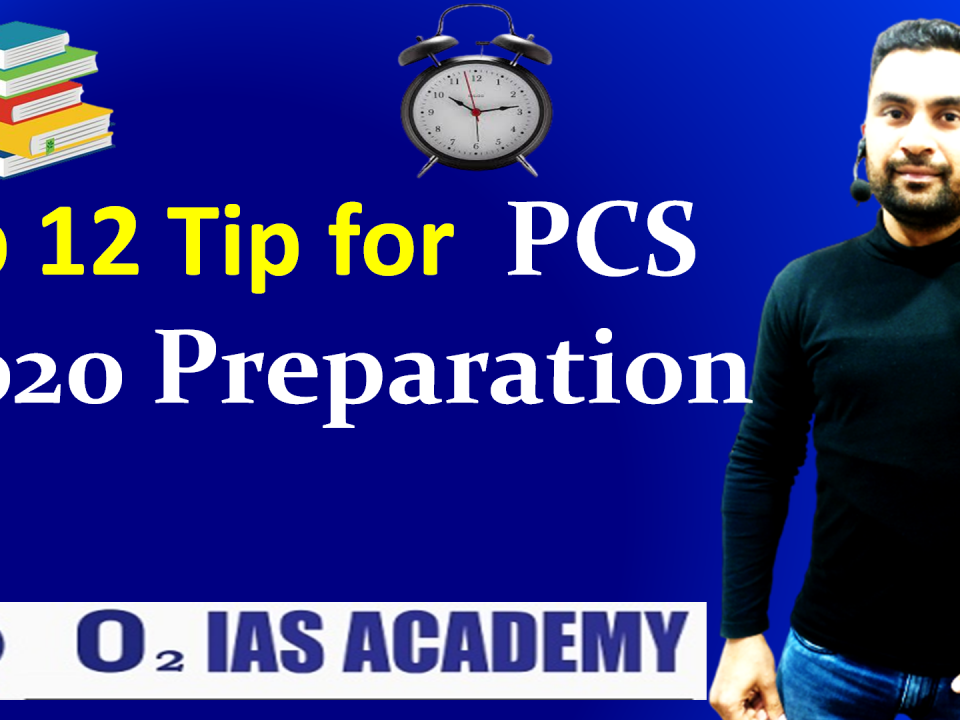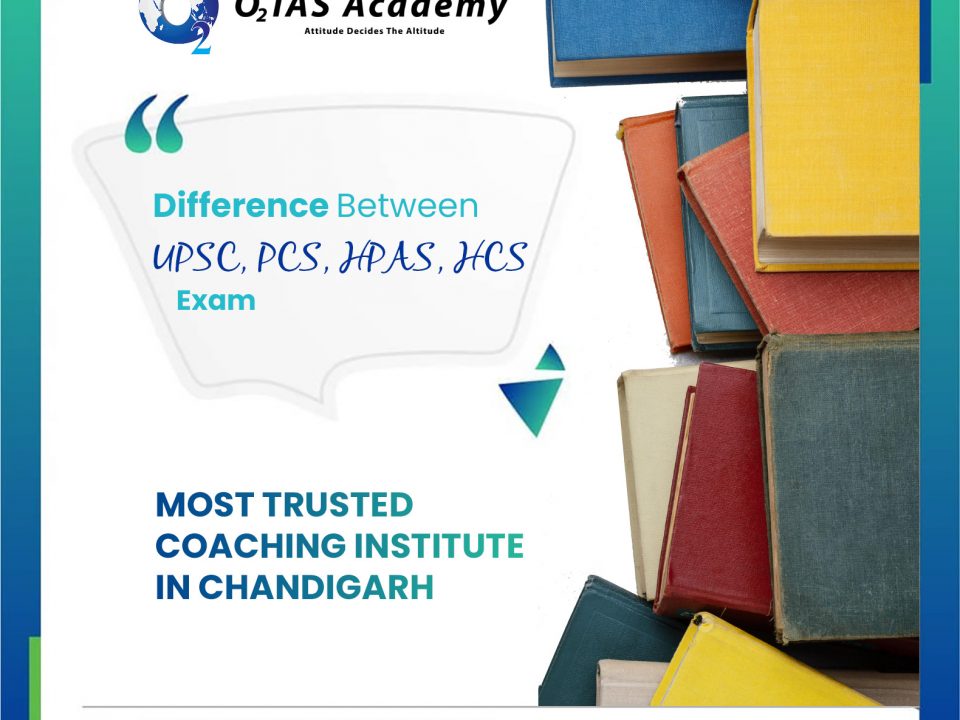UPSC Mains GS 4 Ethics Paper
In recent years Chandigarh has emerged as the new educational hub in the region with numerous schools, colleges, reputed universities and a plethora of coaching institutes. This stands true for the IAS institutes coaching as well. Our Institute “O2 IAS Academy “, is one the best civil service coaching institute in Chandigarh. In this blog post, we shall be discussing the strategy for UPSC Mains GS 4 paper i.e. ETHICS and Integrity.
Ever since UPSC changed its examination pattern GS paper 4 has emerged as one of the most tricky and demanding papers for students. Many students have doubts about how to begin preparing for its syllabus. This is because Ethics paper is considerable different from GS 1, 2 and 3 in the following ways:
The syllabus of GS paper 4 is significantly different from GS1-3 and thus demanding a different strategy. While other GS papers focus on history, polity, science, economics etc topics which can be prepared holistically by reading a few standard books and rigorously analyzing newspapers. The GS paper 4 syllabi are designed to test candidates attitude and approach to deal with ethical issues and dilemmas which a public officer encounters on a daily basis.
The objective of this paper is to simply analyse candidate’s ethical side in a practical way and not to see an understanding of theoretical aspects, theories, static data and info, thinkers and other subjects related information like other GS papers. For example, it is important to study the repealed amendments and bills for GS paper 2, static theories like continental drift theory for GS 2 geography portion but one does not need to master all the thinkers and theories in depth for GS 4. Thus, instead of rote learning and theoretical understanding of the subject and use of technical jargon. The focus should be on clarifying core ethical issues and formulating practical solutions to case studies.
The biggest misconception among students upon reading the syllabus is that ethics is a very easy subject that does not require any dedicated preparation. The thing is generic terms like integrity, honesty, ethical dilemmas etc seem to be easy to prepare on the face value but in fact, they are not. Remember aspirants, UPSC does not want to test whether you know the definition of these terms or not (which most aspirants copy and paste from Wikipedia). They want a quality answer with real-life examples, practical solutions with a just a sprinkle of good quality definitions and the topping of bare minimum technical jargon. You have to remember at any given point of time there are lakes of aspirants preparing diligently for mains alongside you. So, if you choose to ignore ethics paper it may prove to be your Achilles heel.
The best thing about this subject is that it gives great returns with little investments i.e. it has the great cost to profit ratio. Not only is the syllabus minuscule in comparison to other GS subjects. In addition, the entire subject can be done within 2 to 3 months of dedicated preparation while other GS subjects require 8-10 months of preparation.
Now, let us discuss a general strategy for this paper:
- The first step of your preparation of any subject should always be to scan the UPSC syllabus properly and then study the UPSC previous year papers. Try to correlate the syllabus topics with the kind of questions asked by UPSC. You will find that questions are fairly easy to tackle with a decent preparation and that there is no need to dwell on the theoretical aspect too much. The focus should be on the case studies part of the paper and opinion-based questions which together form more than 50 per cent of the marks. This portion can become your gold mine of marks if exploited with a good strategy.
2.Secondly, you should choose your sources for study at an early stage and stick to that only. Spending too much time reading multiple reference books will not yield results proportionate to the time money and hard work invested.
Suggested books:
- ARC 4th report
- Citizen Centric Administration – ARC Report
- Ethics by some D. Subbarao
- Ethics book by Lexicon
- Good Governance (2013), Inclusive Governance (2013), Reforms in Public Administration (2014) Yojana issues.
O2 IAS Academy’s Booklet for Ethics and Integrity
The next step is current affairs: After you have had a general understanding of the syllabus and previous year questions you will start recognizing the ethical issues involved in developments in India and the world. For example Animal testing- Should it be banned? , Capital punishment-what is your view on it? Mob lynching, Euthanasia and its practice in India- what is your view? Clinical trials – how ethical they are? Etc.
With time you also will start understanding analyzing day to day issues from ethical perspectives. Such as what does happiness mean to you? How important are friends to you? How do you see your family in your life? What qualities do you want to see in your partner? Is it okay to break laws to reach ethical goals? What is more important ethics or laws?
These examples can not only be asked in the paper as it is but can even be quoted as an example to substantiate and support your argument in answers.
The final step in the preparation is to practice writing answers. And eventually after learning the art of answer writing and solving case studies one should ideally join a good test series. Ethics paper is one of the lengthiest papers in mains examination. Without proper answer writing practice, it is very difficult to attempt all the questions in the paper with good quality answers. It is better to not take such a risk which might cost you your rank or quite possibly elimination from the next stage. There are no shortcuts to success. Thus, after completing the syllabus one must practice writing answers and develop an ethical mindset in order to solve the case studies. Since the syllabus of the ethics is small and manageable therefore the majority of time should be spent on honing your answer writing skills, time management and solving case studies.
Dear aspirants, remember your aim is to clear the exam and secure a good rank and in doing so Ethics can be your wild card. You just need to remember that ethics is not something you mug up and reproduce in the exam. Ethics paper is a mirror of who you are and will be used by UPSC examiners as a yardstick to measure your ethical compatibility to the life of a public servant. The examiner is thus more interested in knowing your views and not an entire generic answer copied from Wikipedia, numerous quotes or views of thinkers. They are much more experienced and knowledgeable than you are and will immediately detect whenever and wherever you are trying to fake or force morality in your answers. So you must avoid giving an overdose of quotes, thinkers and impractical superficially ethical and excessively philosophical answers. Trust your preparation and write genuine answers with real-life examples from news and your life with a little sprinkling of quotes, jargon and your sincerity will reflect automatically in your answers.


